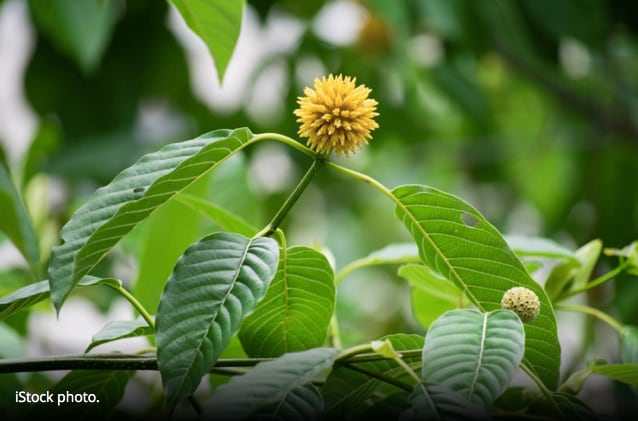The data was presented by Dr Victor Navarro, MD, director of the federally funded Drug Induced Liver Injury Network (DILIN). Dr Navarro is division head of Gastroenterology at Albert Einstein Healthcare Network in Philadelphia and the lead author of the kratom study.
Dr Navarro has presented information on liver injuries associated with dietary supplements for several years now at the annual International Conference on the Science of Botanicals in Oxford, MS. He presented the data from his kratom paper at a recent meeting in Boston sponsored by the American Association for the Study of Liver Diseases (AASLD).
Checkered regulatory history
Kratom (Mitragyna speciosa), a member of the coffee family, has a long history of use in Southeast Asia. It has had a checkered regulatory history in the United States.
The plant contains a number of alkaloids. The most abundant of these, mitragynine, has been thought to act as an opiod agonist, which is why the botanical has been mentioned as an aid in helping wean users off their opioid addictions. It has also been used for pain management in and of itself.
Citing safety concerns, in 2014 FDA slapped an import ban on kratom products. At that time FDA also said that if companies wanted to bring it to market as a dietary ingredient, they should file a New Dietary Ingredient Notification, because there was no evidence that the botanical was on the market prior to the DSHEA grandfather date of Oct. 15, 1994. Even so, the products have continued to find their way into the market.
In 2016, stakeholders in the herbal dietary supplement sphere successfully argued against federal the Drug Enforcement Administration’s attempt to put two active constituents of kratom on its schedule one list of controlled substances. The argument, which was supported by industry groups as well as lawmakers, was that the emergency procedure was not called for by the facts of the case and that it was a violation of the doctrine of due process.
Hepatotoxicity concerns
According AASLD, 90 deaths have been associated with kratom use. And Dr Navarro said information gathered through DILIN shows there is concern about hepatotoxicity.
“The DILIN investigators recognized that an increasing number of liver injury cases due to kratom were enrolled into its prospective study in recent years, and this served as the impetus for this investigation," Dr Navarro told meeting attendees.
According to information presented at the meeting, researchers examined 404 cases of herbal and dietary supplement (HDS) associated liver injury in the DILIN Prospective Study cohort between 2004 and 2018. HDS is a category invented by Dr Navarro to categorize the supplements associated with liver injury that he has seen in his practice.
The researchers found that eight of these cases were associated with kratom use and seven were convincingly associated with the botanical. The researchers determined the likelihood that the liver injury incidents were HDS-associated through a structured, expert-opinion-based causality assessment method where the supplements involved were retrieved when available and analyzed using ultra-high-performance liquid chromatography-mass spectrometry.
Six of the seven cases occurred in men. Six cases required hospitalization. All of the patients recovered, and none required a liver transplant.
According to Dr Navarro, the liver injuries showed a latency period of two to six weeks and presented a mixed picture, with two patients having undergone biopsies that revealed cholestasis, which is a reduction in bile flow.
"[Health care] providers should be aware that this readily available substance commonly used for its psychotropic effects, is capable of causing severe liver injury,” Dr. Navarro said.




